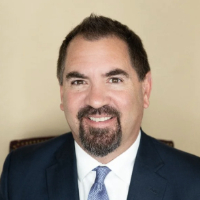Westminster Criminal Lawyer, Maryland
Sponsored Law Firm
-
 x
x

Click For More Info:
-
Cromwell & Associates, LLC
7305 Baltimore Ave Suite 307 College Park, MD 20740» view mapEstate, Tax, and Real Estate Law Where Every Client Matters
At Cromwell & Associates, our firm is large enough to handle your diverse needs, but small enough to give you the personal attention you deserve.
240-667-7234
William Bradley Bauhof
✓ VERIFIEDCriminal
W. Bradley Bauhof is the founder of Bauhof Legal. He is an experienced trial attorney with 30 years of experience, who has appeared in every jurisdict... (more)
Matthew Gregory Luzuriaga
Real Estate, Federal Appellate Practice, Criminal, Business
Status: In Good Standing
Cynthia Hatten Unglesbee
Estate, Divorce & Family Law, Criminal, Accident & Injury
Status: In Good Standing
Brenda Nelson Taylor
Government, Family Law, Divorce & Family Law, Criminal
Status: In Good Standing Licensed: 20 Years
Stephan Andrew Timchula
Child Custody, Criminal, Credit & Debt, Family Law, Workers' Compensation
Status: In Good Standing
Kirk Seaman
Workers' Compensation, Juvenile Law, Criminal, Personal Injury, Insurance
Status: In Good Standing Licensed: 37 Years
Paul A. Capriolo
Estate Planning, Divorce & Family Law, DUI-DWI, Criminal
Status: In Good Standing Licensed: 40 Years
 Stephen Cromwell College Park, MD
Stephen Cromwell College Park, MD AboutCromwell & Associates, LLC
AboutCromwell & Associates, LLC

